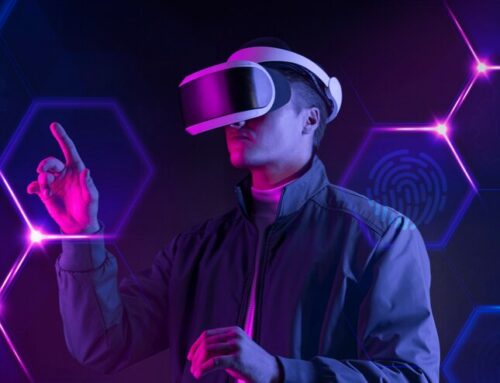In the rapidly evolving landscape of technology, innovations emerge that transform industries and reshape our daily lives. One such innovation is Valktero, a cutting-edge concept integrating advanced technologies into various sectors, enhancing efficiency, productivity, and overall user experience. This article delves into the multifaceted aspects of this transformative framework, exploring its origins, applications, implications, and future potential.
Understanding Valktero
At its core, the concept represents a convergence of technologies designed to optimize processes across different domains. The term encapsulates a vision of a more interconnected and intelligent world where artificial intelligence (AI), machine learning, and the Internet of Things (IoT) collaborate seamlessly.
Historical Context
The origins of this innovative approach can be traced back to the increasing demand for automation and data-driven decision-making in the modern world. As businesses faced challenges related to efficiency and scalability, the need for innovative solutions became paramount. Early iterations of technology focused on isolated applications. However, as systems became more interconnected, a unified framework emerged, aiming to integrate various technologies into a cohesive structure.
Key Components
1- Artificial Intelligence
AI serves as the backbone of this innovative framework. By leveraging machine learning algorithms and neural networks, systems can analyze vast amounts of data, learn from patterns, and make predictions. Consequently, this capability enables businesses to optimize operations, enhance customer experiences, and develop new products tailored to market demands.
2- Internet of Things (IoT)
The IoT refers to the interconnection of devices and systems through the internet, allowing them to collect and exchange data. By incorporating IoT technology, a network of smart devices can communicate with each other, providing real-time insights and enabling automated responses. This interconnectedness is essential for achieving the full potential of the technology.
3- Big Data Analytics
In the age of information, data is a valuable asset. Big data analytics allows organizations to process and interpret large datasets, turning raw information into actionable insights. As a result, businesses can make informed decisions, improve operational efficiency, and enhance customer satisfaction by harnessing the power of big data.
4- Cloud Computing
Cloud computing plays a crucial role in the architecture of this framework, offering scalable resources and storage solutions. Organizations can access and share data seamlessly by utilizing cloud platforms, enabling collaboration and reducing operational costs. Therefore, the flexibility of cloud computing is integral to the success of implementations.
Applications Across Various Industries
The versatility of this innovative framework allows it to be applied across various industries, each benefiting from its features. Here are some notable applications:
1- Healthcare
Advanced technologies can revolutionize patient care and operational efficiency in the healthcare sector. Integrating AI and IoT devices allows healthcare providers to monitor patients in real-time, analyze health data, and make proactive decisions. Predictive analytics can identify potential health risks, leading to timely interventions and improved patient outcomes.
2- Manufacturing
Manufacturers can leverage these technologies to optimize production processes, reduce downtime, and enhance product quality. Smart factories with IoT sensors can monitor equipment performance, predict maintenance needs, and automate production lines. Thus, this level of automation leads to increased efficiency and Cost savings.
3- Transportation
The transportation industry stands to benefit significantly from advanced technologies. Innovative logistics systems can analyze traffic patterns, optimize routes, and improve fleet management. Real-time data from connected vehicles can enhance safety and efficiency, leading to a more sustainable transportation network.
4- Retail
In retail, innovative frameworks can enhance the shopping experience through personalized recommendations and efficient inventory management. By analyzing customer data, retailers can tailor marketing strategies, optimize product placement, and improve supply chain logistics. Consequently, this data-driven approach results in higher customer satisfaction and increased sales.
5- Smart Cities
Intelligent cities align perfectly with the vision of an interconnected world. By integrating technology into urban infrastructure, cities can optimize energy consumption, improve waste management, and enhance public safety. IoT sensors can monitor air quality, traffic flow, and resource usage, allowing city planners to make informed decisions for sustainable development.
Benefits of Advanced Technologies
The adoption of these transformative technologies brings numerous benefits across various sectors:
1- Increased Efficiency
Organizations can significantly enhance operational efficiency by automating processes and leveraging data-driven insights. Streamlined workflows, reduced manual labor, and elimination of bottlenecks result in Cost savings and improved productivity.
2- Enhanced Decision-Making
Analyzing vast amounts of data in real-time allows organizations to make informed decisions swiftly. Therefore, businesses are empowered to respond to market changes, customer preferences, and emerging trends, giving them a competitive edge.
3- Improved Customer Experience
With personalized services and targeted marketing strategies, advanced technologies enhance the overall customer experience. Businesses can tailor their offerings to meet individual needs, increasing customer satisfaction and loyalty.
4- Sustainability
Integrating these technologies promotes sustainability by optimizing resource usage and reducing waste. Technology can lead to more sustainable practices in sectors like manufacturing and transportation, contributing to environmental conservation.
5- Innovation
The incorporation of advanced technologies fosters innovation across industries. Organizations are encouraged to explore new business models, products, and services, driving economic growth and development.
Challenges and Considerations
While the potential of these transformative technologies is immense, several challenges must be addressed for successful implementation:
1- Data Privacy and Security
As organizations collect and analyze vast amounts of data, concerns about data privacy and security arise. Ensuring that sensitive information is protected and complies with regulations is paramount to building customer trust.
2- Integration Complexity
Integrating diverse technologies into a cohesive system can be complex. Organizations must invest in infrastructure, training, and expertise to ensure a smooth transition.
3- Cost of Implementation
While advanced technologies can lead to long-term savings, the initial investment in technology and infrastructure can be significant. Therefore, organizations must weigh the costs against the potential benefits to determine the feasibility of implementation.
4- Skills Gap
The rapid pace of technological advancement creates a skills gap in the workforce. Consequently, organizations must invest in training and development programs to equip employees with the necessary skills to leverage these innovations effectively.
The Future of Advanced Technologies
As technology continues to evolve, the future of this innovative framework looks promising. Several trends and developments are likely to shape its trajectory:
1- Advancements in AI
The ongoing advancements in AI will enhance the capabilities of integrated technologies, enabling more sophisticated analysis and decision-making processes. As algorithms improve, organizations can expect even greater accuracy and efficiency in their operations.
2- Greater Connectivity
Expanding 5G networks and increasing connected devices will facilitate seamless system communication. This enhanced connectivity will drive further innovation and enable real-time data sharing.
3- Focus on Sustainability
As sustainability becomes a global priority, advanced technologies will be crucial in promoting eco-friendly practices. Organizations that adopt these technologies can enhance their corporate social responsibility initiatives and contribute to a more sustainable future.
4- Personalized Experiences
The trend toward personalization will continue to shape applications, particularly in sectors like retail and healthcare. Businesses that leverage data analytics to offer tailored experiences will gain a competitive advantage in the market.
Conclusion
In conclusion, the emergence of this transformative technology represents a significant shift in how systems are integrated and utilized across industries. With its focus on artificial intelligence, IoT, big data analytics, and cloud computing, this innovative framework has the potential to enhance efficiency, improve decision-making, and drive innovation.
While challenges exist, the benefits of adopting these advanced technologies are substantial, paving the way for a more connected and intelligent world. As we look to the future, it is clear that these innovations will play a pivotal role in shaping the landscape of technology and its impact on society. Embracing this change will be essential for organizations seeking to thrive in an increasingly complex and competitive environment.






